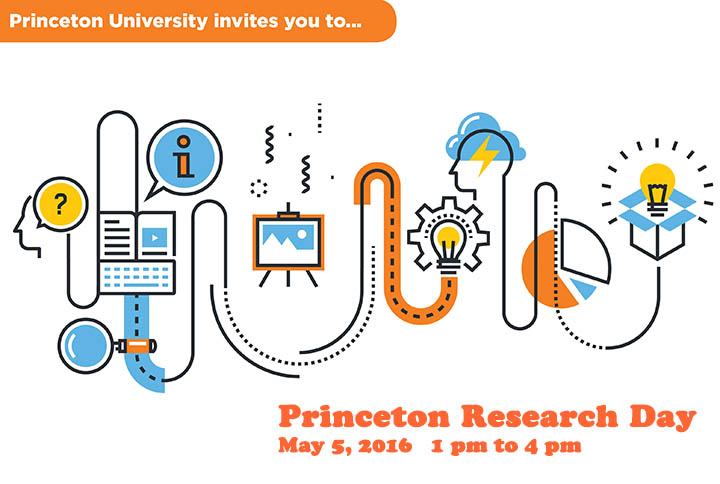Up-and-coming researchers to share their work at Princeton on May 5

Can Princeton’s soil serve as a zero-carbon building material? Can a person’s Twitter feed offer clues to depression? Can updates to Shakespeare’s “Macbeth” make it more accessible to modern audiences?
Those are just a few of the questions student and early career researchers at Princeton University will explore at the first Princeton Research Day on Thursday, May 5. The event will feature more than 150 researchers offering talks, poster presentations, performances, art exhibitions, demonstrations and digital presentations designed with the general public in mind.
The event, which is free and open to the public, will be held from 1 to 4 p.m. in Frist Campus Center. No registration is required.
“Princeton Research Day was designed to showcase tremendously innovative and forward-thinking work by up-and-coming researchers at Princeton,” said Sanjeev Kulkarni, dean of the Graduate School and professor of electrical engineering. “We are delighted to support this event and we are pleased to invite the public to attend this inaugural celebration of research.”
Princeton Research Day will highlight the research and creative endeavors of Princeton undergraduates, graduate students and postdoctoral researchers in fields including the natural sciences, social sciences, engineering, humanities and the arts.
“A lot of people think about lab coats and pipettes when they think about research, but research can really be studying rocks in geosciences to dancing on stage and studying the history of dance. There are a lot of different things that can be research,” said senior psychology major Jalisha Braxton, who will be presenting about differences in the way students learn based on whether they are typing or writing by hand.
The event is a collaborative initiative between the offices of the dean of the college, dean of the faculty, dean of the Graduate School and dean for research.
“The ability to reach across disciplines and communicate about one’s research or creative work in everyday language can lead to new collaborations, new insights into the work, and new directions of inquiry,” said Pablo Debenedetti, dean for research, Class of 1950 Professor in Engineering and Applied Science, and professor of chemical and biological engineering. “The general public benefits greatly when researchers and artists are able to explain the importance of their work and its impact on society.”
For more information, visit the Princeton Research Day website, http://researchday.princeton.edu.
